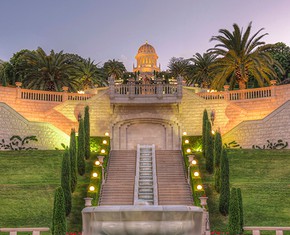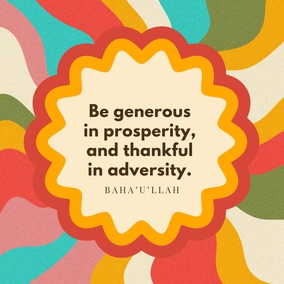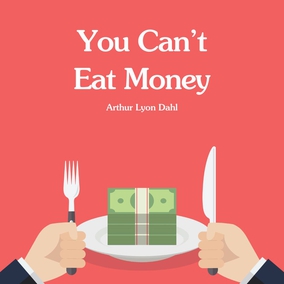The views expressed in our content reflect individual perspectives and do not represent the authoritative views of the Baha'i Faith.
Every Baha’i has a story of where and when they discovered the Baha’i Faith and what led them to recognize the truth of its teachings.
My story is not as dramatic or interesting as the conversion of Saint Paul. I was not knocked off my horse on my way to Damascus.
Here’s how it happened: in 1961, an elderly friend by the name of Lucille Jordan lent a couple of books to my mother and me. At the time, it was not possible to see how this simple act would change the course of my life, but looking back this event led me to discover the Baha’i Faith.
I know that many Baha’is could also tell how their first introduction to the Faith came through the simple loan of a book.
Lucille was a kind-hearted older lady employed by the same hospital where my mother worked as a nurse. Even though she lived some distance from us in the sparsely-populated area around Bell Mountain, we visited each other regularly. Distances between neighbors and friends are greater in the Mojave Desert than in other places in California. Even in the arid and optimistically named Apple Valley where we lived, there were few houses nearby. Bell Mountain was even worse; it was more of a community of tumbleweeds and sagebrush than of people. Knowing that my mother and I were interested in religion, Lucille lent us the books.
Like many people living in the desert, we were interested in God but not very impressed with churches.
Over the years we had attended, on one occasion or another, every church in the surrounding towns to hear what they had to say, but we were not members of any particular faith. They all seemed to be vying with one another for the exclusive rights on God, each one insisting that their church was the only true religion. The Baha’i teachings point out the logical contradiction in all this:
All consider themselves, respectively, the only guardians of the truth, and that every other religion is composed of errors. They themselves are right, all others are wrong! The Jews believe that they are the only possessors of the truth and condemn all other religions. The Christians affirm that their religion is the only true one, that all others are false. Likewise the Buddhists and Muhammadans; all limit themselves. If all condemn one another, where shall we search for truth? All contradicting one another, all cannot be true. If each believe his particular religion to be the only true one, he blinds his eyes to the truth in the others. …
We should, therefore, detach ourselves from the external forms and practices of religion. We must realize that these forms and practices, however beautiful, are but garments clothing the warm heart and the living limbs of Divine truth. We must abandon the prejudices of tradition if we would succeed in finding the truth at the core of all religions. – Abdu’l-Baha, Paris Talks, pp. 135-136.
Competition among churches was fierce to attract membership among the scant inhabitants of the desert, and preachers went to extreme lengths. For example, in desperation one preacher erected a small white picket fence around a well-watered square meter of grass in front of his church. He informed his congregation that when Jesus returned to Earth, this tiny grassy square was the precise spot where his foot would first touch the ground as he descended from heaven. The congregation seemed to accept this assertion without question. I think at this point we stopped going there.
We learned that the best information about God and religion was to be found, not in the pulpit, but in books; and so with no further churches to attend in the area, we contented ourselves with reading. Books were a part of our household and lifestyle, and my mother taught me that books were not mere decorations or units of good intentions. Bookshelves were designed to hold books you had already read and wished to read again. As I grew up, I inherited my mother’s voracious appetite for knowledge, and her belief that people are not only what they do but what they read. From looking at our bookshelves anyone could tell that we were seekers.
Knowing this, Lucille lent us some books about a religion we had never heard of: the Baha’i Faith. In the evening of the day she received them, my mother sat down in a chair and began to read, and when I went to bed she was still reading. In the morning when I woke up, she was still awake, sitting there with a book in her hands. By now the table beside her was covered with other books laid open and stacked on top of each other. My mother had not only read both of Lucille’s books in one night, she had been comparing what they said with other books we had in the house.
That morning when she got to work, she asked Lucille if she were a member of this religion, if she were a Bahai. The word was new and she did not know exactly how to pronounce it, or for that matter what it meant. She discovered that Lucille did not know either. Lucille was not a Baha’i – the books had been given to her by someone else whose name and phone number were written inside the cover. She had not had a chance to read them before my mother borrowed them.
That evening my mother phoned the number. I remember how the conversation began. My mother introduced herself and said: “I have a houseful of books on religion. How is it I have never heard of the Baha’i Faith before?”
My mother could be very direct, and I could only imagine the other side of the conversation. She continued: “You people must be the best kept secret in the universe. I’ve been looking for you for twenty years. I knew that there must be a religion like this out there somewhere, I just didn’t know what it was called.”
After a lifetime of searching for the truth, it had, in a sense, found her. It was amazing that it had taken so long to discover the Baha’i Faith, because once we knew what it was, it was easy to find. There were Baha’is everywhere, we kept running into them. There were books about the Baha’i Faith in the public library, and entries in the dictionary and encyclopedia. It was even listed in the phone book. It had been there all along; we just hadn’t seen it. This, of course, pre-dated the advent of the internet.
Soon, my mother went through a remarkable transformation. Within a few weeks she had gone to visit the lady she had spoken with on the telephone, read half a dozen other books on the religion, and become a Baha’i. Soon afterwards, when Lucille was able to get the books back and read them for herself, she decided that she was a Baha’i also.
I had to wait my turn to read those books. In the meantime my mother explained what she had found in her reading, and for days we talked about nothing else. The Baha’i Faith was a real discovery. I found the story fascinating: I learned that a new messenger of God had lived in the middle of the last century in a place called Persia. His name was Baha’u’llah, which translated into English meant “The Glory of God;” and the people who followed his teachings were Baha’is, literally, “followers of Baha’u’llah.”
This series of essays is adapted from Joseph Roy Sheppherd’s book The Elements of the Baha’i Faith, with permission from his widow Jan Sheppherd.
















Comments
Sign in or create an account
Continue with Googleor